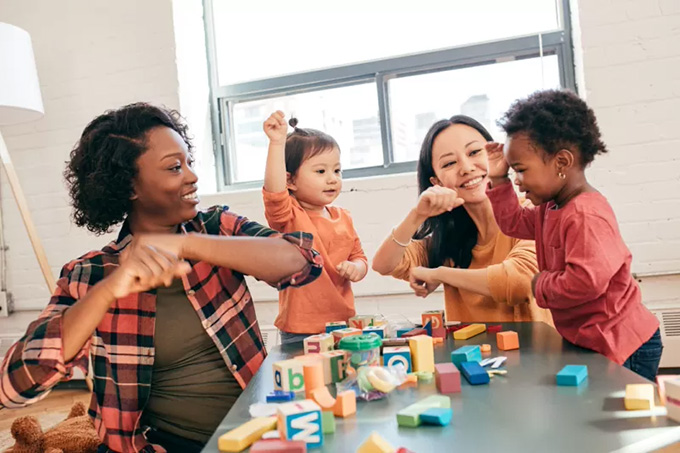
All professionals related to childhood recommend spending quality time with our sons and daughters. But what is quality time? Is little but quality time enough for a good development of the family?
To give an answer based on evidence, there are some correlational studies on educational guidelines and parent-child relationships. In them, these guidelines are classified as theoretical constructs: directive, permissive, formative, neglectful, democratic, etc.
But when child and adolescent behavior problems are approached from psychological treatments with an empirical and not theoretical basis, validated and with proven efficacy, some very specific guidelines do appear that improve these relationships.
Interventions to improve relationships
They are forms of intervention that do change the problems of family life: lack or excess of discipline, negativism, disruptive behavior, dissocial, etc.
One of them is parent-child interaction therapy (PCIT), which has shown its success and efficacy for several decades, and which is precisely based, not on the time or quality of the relationship, but on in the way of interacting and the function of those relationships.
It always means spending time, but the important thing is how and why we relate to our sons and daughters. With this base, we can list some recommendations.
Decalogue of good relationships
- Schedule a time and space for the relationship. The game can be improvised, but if you want to have a record, it is important to schedule a time and a place where it takes place. Just as we have sofa and TV time , we should have family game time.
- Create a closeness, verbal and affective. Talk to your children always positively, with affection, without imposing or commanding, suggesting, being affectionate in short.
- The (non-educational) game is the best tool. Use games that are fun, not educational; not seek to teach, but directly and simply have fun all together.
- Choose the games well and adapt them to the age. In general, activity games, lots of movement, running, jumping, dancing, etc. They are suitable for very young children. Better if space is available or they are done outdoors. But they can also be suitable for other older games, especially sports and group games. Board games for older ages, but always fun (not smart-alecks, or quiz-questions).
- The child has to take the lead. They are the ones who must take the lead and make the decisions about what is played. They must choose the games or activities to do together, and once they have decided to follow the rules of that game until they finish it or dedicate a good time to it. Consistency is not taught if you change games every two minutes.
- The relationship must be fun (reinforcing). Interactions while playing should be kept fun, not competitive. Letting win from time to time feels good. You have to feel like repeating the experience again. The game has to produce laughter in all. If not, it is not such a game.
- Promote autonomy, decisions and responsibility in the interaction. Show and highlight the decisions that the children are making, and the rules of the game that everyone must comply with, and if the parents have to go back to square one, they will have to put up with it.
- With teenagers, reach agreements, negotiate. The best social skills to encourage at this age are those of reaching agreements, negotiating, receiving but also giving. Teenagers must continue to be the ones who decide what to play. Video games can be an option, but only partially. It is better to limit yourself to them, and if they are sports better than shooting.
- Pay attention in general, but ignore behavior problems. When there are fights, anger or bad words for losing or any other matter, remain calm, wait thirty seconds (if at all, even count backwards), and then reason what is happening, what can be done, what arrangement or compromise to make, how to settle the dispute. If it becomes too strong, the game is paralyzed and the person causing the anger can remain watching, without intervening while the others continue playing.
- Skills to be learned by parents: praise, reflect, imitate, describe, enthuse. Most adults tend to focus on what is wrong, on mistakes, with the purpose of educating, correcting, helping to improve. However, they achieve the opposite effect. What they have to learn is to focus on the positive, praising it, reflecting what the child has said or done, imitating their movements, their way of speaking, being just another child in the game, describing what they are doing and, above all, everything, excite If a father or mother does not enjoy the game, he or she cannot expect the child to do so.
These 10 rules are summarized in two:
- Remember how much you loved to play and how happy you were as a child.
- Treat your children as you would like them to treat you.
Author Bio: Luis Valero Aguayo is Professor of the Dept. Personality, Evaluation and Psychological Treatment at the University of Malaga
